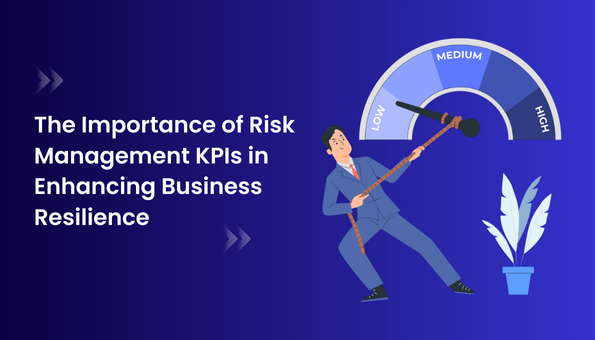The Value of Recognizing the Relevance of Risk Management in Various Industries

The Core Concept of Risk Management and Its Objective
Risk Management, the keystone of many sectors, pivots on the identification, analysis, and reduction of uncertainties in a service environment. By correctly identifying possible dangers, services can develop strategies to either prevent these threats from happening or reduce their impact. As soon as dangers have been determined and assessed, the reduction process involves designing techniques to reduce their prospective impact.
Benefits of Implementing Risk Management in Organization Workflow

Revealing the Role of Risk Management in Different Industries
While every market confronts its one-of-a-kind set of threats, the execution of Risk Management approaches stays a common measure in their quest of sustainability and growth. In the medical care sector, Risk Management involves ensuring individual safety and security and information protection, while in financing, it entails mitigating investment threats and making sure governing conformity (importance of risk management). Building and construction companies concentrate on worker safety, project delays, and budget plan overruns. In the innovation market, firms mitigate cybersecurity hazards and technology obsolescence. Eventually, the function of Risk Management across industries is to identify, examine, and minimize risks. It is a crucial component of tactical preparation, making it possible for organizations to protect their possessions, make the most of chances, and accomplish their goals.
Real-life Case Studies Showing Effective Risk Management
To recognize the importance of Risk Management in these several fields, one can want to several real-life circumstances that highlight the successful application of these steps. In the power market, British Petroleum created Risk mitigation plans post the 2010 Gulf of Mexico oil spill. They applied better safety and security treatments and stricter policies which considerably reduced more accidents. Likewise, in finance, Goldman Sachs efficiently browsed the 2008 financial crisis by recognizing prospective mortgage-backed protections risks early. Last but not least, Toyota, post the 2011 earthquake in Japan, changed its supply chain Management to decrease disruption threats. These cases check that demonstrate exactly how sectors, finding out from crises, properly applied Risk Management approaches to decrease future threats.
Future Patterns and Growths in Risk Management Approaches
As the globe continues to evolve, so as well do the trends and advancements in Risk Management strategies. published here Fast improvements in technology and information analytics are reshaping the Risk landscape. Huge data and AI are now crucial in forecasting and reducing dangers. Organizations are leveraging these devices to construct predictive models and make data-driven choices. Cybersecurity, as soon as a peripheral worry, has catapulted to the leading edge of Risk Management, with methods focusing on avoidance, feedback, and detection. The combination of ESG (Environmental, Social, Governance) factors into Risk Management is an additional expanding pattern, showing the raising acknowledgment of the duty that social and ecological risks play in company sustainability. Thus, the future of Risk Management lies in the blend of innovative modern technology, innovative strategies, and a holistic strategy.
Final thought
In verdict, comprehending the value of Risk Management across a range of markets is essential for their durability and prosperity. Eventually, effective Risk Management contributes to a lot more resistant and lasting companies, highlighting the importance of this practice in today's dynamic and very affordable organization setting.
While every sector challenges its one-of-a-kind collection of threats, the execution of Risk Management methods remains an usual denominator in their pursuit of sustainability and development. In the medical care field, Risk Management entails making sure person safety and security and information defense, while in financing, it includes mitigating financial investment dangers and guaranteeing regulatory conformity. Ultimately, the duty of Risk Management throughout industries is reference to recognize, examine, and alleviate dangers. These situations show exactly how markets, learning from situations, properly applied Risk Management methods to decrease future risks.

Comments on “Why Organizations Should Emphasize the Importance of Risk Management Now More Than Ever”